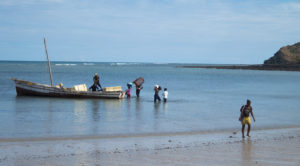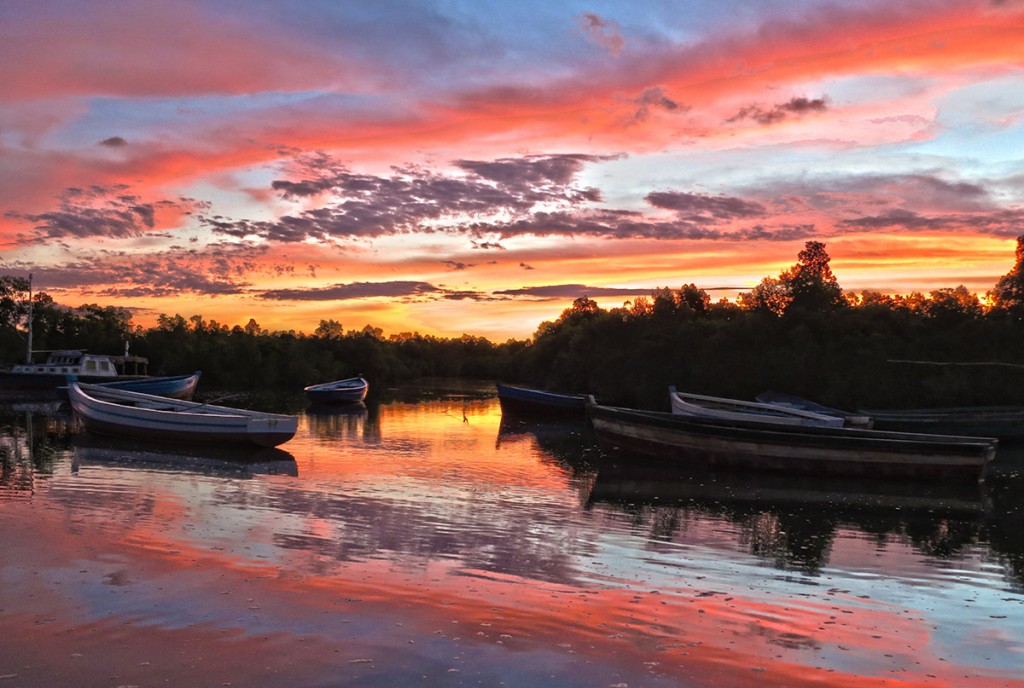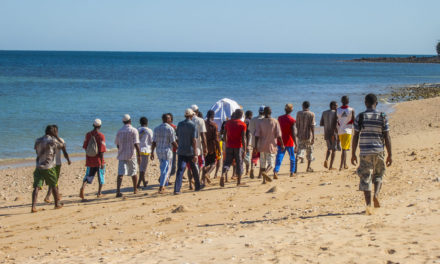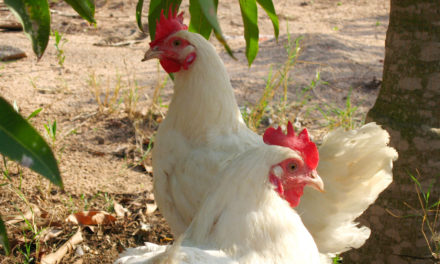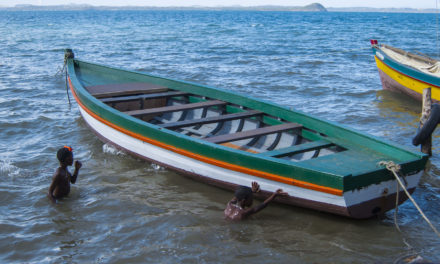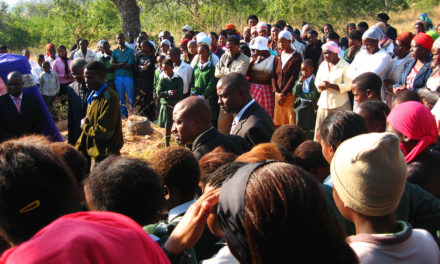
Matimu at the airport, waiting to fly on a trip from South Africa to the US. Matimu LOVES airplanes!
T he past year and a half has been a life of transience for us. During this time we’ve traveled over 40,000 miles! We’ve stayed for over a week in 11 different places including 5 different countries, traveled in 15 planes, 4 boats, hiked probably a hundred kilometers, and have spent countless hours in a bus or car, all to get to the places we’ve stayed. We’ve rarely had the chance to settle in any one place. It’s no wonder our 2 year old son has developed an obsession with every different method of transport you can think of!
After a wonderful but extremely busy visit to the States, South Africa, and Tanzania, we’re finally back in Madagascar where we’ll settle and make our home on Nosy Mitsio, a small island off the northwest coast. But our journey to get there still lies before us! From the capital city it’s a 20 hour bus ride (if nothing breaks down) to the nearest big town, another hour bus ride to the port, and about a 6 hour sail boat ride over the open ocean. Depending on when you get to the port, you may have to wait a few hours or a few days based on how the winds are blowing and when people are going.
In just a few weeks, we will be making this last, long and uncomfortable leg of our journey. And then finally we’ll be there, ready to get to know the people and settle into a rhythm of life on this practically untouched island! But… we still won’t have a home, for a little while at least. After all this time and preparation to get to the place God has sent us, it looked like we were going to have to live out of a tent until our house is built.
It was just a few days ago that we found out who was going to build our house, which is great, but so many other questions and concerns still plagued me. Like how are we going to get all our belongings, materials for our house, and the food we need over to the island? Where will we store it in the meantime? How many delays will occur even before all of that? How will I keep track of my toddler next to the ocean and learn a new dialect while all this is going on? Where will we get our water? Where will we bathe and use the toilet while our bathroom is being built?
G od, how much longer will we be in transition? When can we have a home and really become part of a community again?
And then I came across Hebrews 11:8-10 just as I was thinking about this: “By faith Abraham heard God’s call to travel to a place he would one day receive as an inheritance; and he obeyed, not knowing where God’s call would take him. By faith he journeyed to the land of the promise as a foreigner; he lived in tents, as did Isaac and Jacob, his fellow heirs to the promise because Abraham looked ahead to a city with foundations, a city laid out and built by God.”
Then just a few verses down in verse 13 comes the kicker: “All these that I mentioned died in faith without receiving the full promises, although they saw the fulfillment as though from a distance…”
Abraham followed God’s call and spent his whole life journeying, always transient, always a foreigner in the land. He only just glimpsed the very beginning of God’s promises for him before he died.
F or the first time I actually understood what faith really means, but was I willing to live my life like this: to step out believing that God is accomplishing what I cannot presently see? I immediately realized how much I was like Peter. I’ve also stepped out of the boat to follow Jesus’s call but now I’m clamming up, afraid of the uncertainty around me and the waves that’ll toss me to and fro. The difficulties seem too great and this whole mission is looking crazier and crazier! This is not what I signed up for! Like Peter, I’ve had very little faith.
Verse 13 goes on to explain how those in the Old Testament had such great faith: “…These people accepted and confessed that they were strangers and foreigners on this earth”
I’m all too familiar with being a foreigner! It’s exhausting and tiring always trying to adapt and adjust to the world around me, yet exhilarating at the same time. The way of life is so completely different from the way I’ve been raised, from a person’s worldview and way of thinking right down to how a person bathes. And every place brings new sights and sounds, new words and dialects, new joys and challenges.
Whenever I visit different places in Madagascar, the children giggle and people are amazed at how much Malagasy I know. Yet they still try to speak to me in French assuming that foreigners come from nowhere else but France. Ha! Ironically, they see me as a foreigner but not even as the foreigner I really am.
And the longer I stay away from “home” the less it becomes home and the more it becomes a foreign land. As I become more and more detached from my home of origin I find that I can no longer relate to most of your average American’s topics of conversation. I’ve become a foreigner even in my homeland.
S o why did Abraham choose to give up his identity and become a foreigner? Why would he give up his home to spend so many years of his life constantly on the move, believing and trusting in God to lead him to the promised land, just to “…die in faith without receiving the full promises…”? How did Abraham have faith like that?
Because, “…such saints as these look forward to a far better place, a heavenly country. So God is not ashamed to be their God because he has prepared a heavenly city for them.” (verse 16)
The truth is, as Christians we are all foreigners on this earth. He wants us to realize that. He is accomplishing his work whether we see it or not. And to fully trust him and have faith that he is accomplishing what he said he would, we must relinquish ourselves and stop holding on to whatever it is that we think gives us our identity. We’re not defined by our job, our salary, our stuff, our country, our family, our expertise, our talents, our friends, our church, or even our good works. All of that and most of what consumes our thoughts on a regular basis is just temporary anyway.
He wants us to be the foreigner so that we have to rely on him. So that we don’t look to our outward circumstances to determine our identity or our “home.” John 15:4 says, “Abide in me, and I will abide in you…” As we abide in him we make him our permanent dwelling place. And as we make him our fortress and dwelling place, we have faith that although everything around us may change, he is constant. It’s in this dwelling place where we find real joy and peace.
“Lord, you have been our dwelling place in all generations.” Psalm 90:1
This has been a long, hard lesson for me. As most of you know, Adam and I lived in a rural village in South Africa a little over 2 years before coming to Madagascar. I’ve been learning what it means to be a foreigner since then. But it took until now after a life-time of following Christ to even begin to have a glimpse of what faith really means. He’s had to strip away my most basic sense of security that us Americans hold so dear.

During the setup trip, Adam, our YWAM co-worker Joe, and our future home builder Herdini, stayed in a tent on the beach on Nosy Mitsio.
A nd so we will make that long journey up north, but it turns out we will not only make that trip once but three times! Adam made the first preliminary journey over the last couple of weeks, arranging what he could. The second trip up will be just us without our belongings as there really won’t be any place to store them on the island. The king is restoring a very small hut for us to sleep in while our house is being built (so we won’t have to stay in a tent!). Then, when our house if finished, it’s back to the capital city to get our few belongings and then north again! So, for a little while longer, we still won’t have an outward home. The whole process is going to be very difficult and uncomfortable. Many questions are still unanswered. But this is the faith God has shown me: that even though my outward home either changes or is nonexistent, he remains to be my everlasting dwelling place wherever I go on my journey as a faithful foreigner.
Susan Scott Sutton in her book A Quiet Center, states it well:
I think we must all ask ourselves the question: how strong is our faith in him when our sense of security is shattered? And what a false sense of security we have indeed! Do we trust him when our schools are no longer safe? Do we trust him when our politicians make bad decisions? Do we trust him when our homes and all of our things are destroyed by a tornado? And do we trust him when we hear bad news from a doctor?
These are all very difficult questions, but following Christ was never meant to be comfortable or easy. He asks us to give up everything for him so that he becomes our everything. In doing so, we become faithful foreigners on this earth knowing that we are truly a citizen of an everlasting and unshakable Kingdom.

